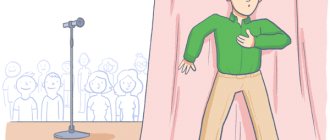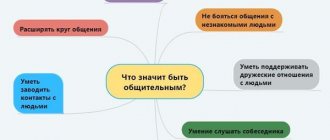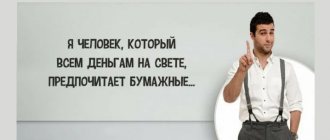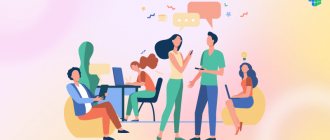Hi all! Homeschooling is becoming fashionable now. There are many arguments for and against this form. But the main thing for homeschoolers is to develop the skill of learning independently. We will not discuss now whether these people are right or wrong, we will talk specifically about this skill. In this article, I will give powerful technology and tips on how to learn to study in order to become an effective person.
COMPLETE LIST OF HUMAN SKILLS
Just imagine: you can learn almost anything.
Photos here and below @mikeboydvideo
If you've ever dreamed of mastering skateboarding, riding a unicycle, doing a backflip, or being able to solve a Rubik's cube, you've probably given up on the idea because you're too busy/lazy/old/don't have the inclination for it.
But Scottish YouTuber Mike Boyd decided to prove that all this is nonsense, and now inspires his subscribers by his own example to finally learn what has long interested them.
Hearing Malcolm Gladwell's theory that we can learn anything
skill with 10,000 hours of practice, a 26-year-old guy from Scotland decided that he would try it himself. As a result, the YouTube channel Learn Quick appeared, on which the blogger records all his achievements.
For example, he learned to spin a basketball in 4 hours and 39 minutes
, and throw a boomerang in just
two hours
. Here are tips from this guy on how to quickly and easily master almost any skill.
Why do you need to be able to study?
Let's go back a little to history. The term “ability to learn” was first used by scientists of the activity approach in psychology: Vygotsky, Elkonin, Leontiev, Davydov. And I really like their postulates. They identified a theory that works well in practice: a person must work on himself in order to be able to do many things. This is in simple words.
The goal of the activity approach is not to give the student everything on a silver platter, but to encourage him to independently acquire knowledge.
This approach is a win-win - in a changing world, a person himself can adapt, adapt, and not wait for manna from heaven. This orients a person towards responsibility towards himself and towards success.
This skill is needed more than ever in the 21st century. We get a lot of information from everywhere. But ask a modern child who Raphael is or what continent Chomolungma is located on, how this or that word is spelled, and he will be confused. Why is this happening? Many simply do not have the learning skill. He was instilled with cramming, work for assessment, but he needs to want to learn. This is the problem of modern children.
Knowledge is the new money
Intellectual capital will always exceed financial capital
Paul Tudor Jones, self-made billionaire
When we say that we don’t have time to study, most often it means that we spend all our time feverishly earning money. But now the relationship between the value of money and knowledge is changing.
The time is coming that the famous futurist Peter Diamandis calls “instant demonetization.” Technology is turning previously expensive products and services into cheap or free ones.
Diamandis's book Abundance contains a table that shows how $900,000 worth of products and services were demonetized between 1969 and 1989.
Demonetization will accelerate. Self-driving vehicle rental services will make one of the most expensive purchases – a car – unnecessary. Virtual reality will make expensive entertainment - concerts or golf - accessible. It’s too early to equate virtual reality with physical reality, but VR is developing very quickly.
Currently, the cost of education and health services is rising, but innovation in these areas will also gradually lead to demonetization.
Unlike traditional universities with bloated administrative staff, campus construction and other costs, new educational projects reduce the cost of education.
Many are going completely online and focusing on teaching applied skills that will quickly return on investment in education. Or they partner with companies that sponsor students and hire graduates.
New technologies - CRISPR, XPrize Tricorder, the development of disease diagnostics using artificial intelligence and cheaper DNA analysis - will revolutionize the healthcare system, significantly reduce the cost of medical services and shift the focus from treating diseases towards prevention.
While goods and services are rapidly depreciating, the value of knowledge is growing.
In the 20th century there was a depreciation of material things. In technology, economics and politics, the value of physical resources is declining. The power of the mind everywhere overcomes the brute force of things
George Gilder, economist, writer, investor
One of the best examples of the growing value of knowledge is the self-driving car industry.
Sebastian Thrun, founder of Google X and head of Google's autonomous vehicle team, cites the example of Uber, which bought Otto with 70 employees for $700 million (the startup had only existed for six months at that time). General Motors, in turn, spent $1 billion to acquire Cruise.
He calculated that today one employee in this industry is worth 10 million dollars. 10 million dollars for one qualified worker!
This situation applies to all specialists who have skills for the professions of the future - analysts, developers, physiotherapists. Those who learn quickly will win.
What do the children think?
And the kids complain almost exactly about the same difficulties that their parents talk about. But if the parent’s message sounds something like: “Do something with him already, this is no longer possible!”, then the children themselves are perplexed as to why this happened and want to really understand the problem.
“I’m too lazy to do my homework, I can’t remember important information - numbers, dates, names, poems. It’s very scary to ask the teacher again if you don’t understand something.”
At the same time, it is obvious to almost everyone that what happens next is worse, gaps in knowledge accumulate like a snowball, academic performance decreases, and as a result, interest in the subject disappears and daily stress appears.
“I’m afraid to go to the board, I can’t overcome the fear of public speaking.”
Children who cannot calmly recite a poem at the board will experience great stress in adulthood if they have to speak in front of an audience.
“I can’t concentrate, I get distracted. To be honest, I don’t understand why I should go to school and know all this! There are no friends there - it’s boring!”
Most elementary school children can communicate well with everyone in the family, but at the same time face great difficulties when communicating with other children. Teach them how to communicate, formulate together a list of interesting topics - this will help elementary school students show interest in their peers and become outstanding interlocutors themselves.
“I don’t know how to plan time. I came home, ate, played, walked, and suddenly before going to bed I remembered about homework because my mother came home from work. ».
Let's make a reservation right away: the child does everything under pressure through no fault of his own - he was simply not taught how to plan time and distribute tasks. And there is a way out! We will gradually figure out how to find it.
Celebrate mistakes
Life is a training. When you treat her that way, everything becomes easier. Make mistakes, try again, look for answers, make mistakes again and try again.
Mistakes are inevitable. This is a useful part of the process. It is normal to make mistakes in any training. If the project fails or doesn't turn out the way you planned, that's okay. The main thing is that you learn new things.
Hope. my rules will help you formulate your answer to the question: how to study effectively. Take action. Good luck.
The right technology for any training
Many people do not know how to study properly. And this is the problem of our society. There is a cool structure that helps you develop this skill. I’ll secretly share it with you.
- We accept the fact that we don’t know something. We don’t know deeply, as we should. First you have to realize it: “Oh, I don’t know that.” Then accept: “Yes, I still don’t know!” Then understand that you need to learn: “I need this knowledge!”
- We accept that we need a mentor. Of course, we can figure out a topic ourselves. But while we do this, a lot of time will pass. Therefore, we are looking for a mentor who has achieved results in a particular matter. If we want to get rich, then we are looking for a rich person, if we want to become a manager, we are looking for a successful manager, if we want to become a musician, we are looking for a good musician.
- We are looking for the RIGHT mentor and do not skimp on paying for his services. Why pay? Firstly, it will stimulate us to be diligent. Secondly, the mentor will give his best and pass on his valuable knowledge.
- We go through repeated repetitions and pain, which are inevitable during training. When a child learns to walk, he falls. When an owner makes repairs, he makes a mistake. When a housewife cooks borscht for the first time, it is not a fact that it will turn out tasty. Don't be afraid to make mistakes, don't be afraid to fall and get up - that's the only way you can learn! It will definitely work for the 100th time!
- We bring the acquired skill to automaticity. It is the automated action that will make you a good driver, musician, athlete, operator, etc. Rich and successful people spend money and time automating one skill and then move on to developing the next. Automated action frees up a lot of time, which is more valuable than money.
Timing: how to manage time wisely
During the day
In his new book, When: The Scientific Secrets of Perfect Timing, author Daniel Pink provides a wealth of advice on time management from a biological, psychological, and even economic perspective.
Among them there are several very specific recommendations that can help with your studies. In particular, Pink advises taking into account circadian rhythms when planning your load. Circadian rhythms affect not only our sleep, but also our mood and concentration, which change cyclically throughout the day. On average, seven hours after waking up, concentration and mood reach their lowest point, after which they begin to increase again (which is why many life coaches advise not to put off important tasks and start them in the first hours after waking up). It is our circadian rhythms, in particular, that are associated with the fact that the likelihood of errors occurring at work (for example, in medical institutions) increases between 14:00 and 16:00.
Of course, students don't have to wake up early or at the same time every day, but understanding your chronotype and circadian rhythm can be used to benefit your studies. For example, plan the most complex tasks (such as preparing for exams or a seminar) for the first two to three hours after waking up - understanding that in the following hours concentration will inevitably decrease (we’ll talk about what to do with this “unproductive” time below) .
Before the deadline
Of course, the lack of time is most acute on the eve of exams.
By the way, “pushing until the last minute” is not just a habit of careless students; in fact, this behavior is typical for most of us. One of the examples that Pink cites in her book is a study by scientists from the University of California at Los Angeles, which showed that most groups of subjects during experiments do nothing (or practically nothing) for at least the first half of the time before the deadline, and only then start work. To avoid the “burning train” effect, scientists advise setting intermediate goals and using the “chain movement” technique: mark each day during which you spent time preparing for the exam (doing a laboratory test, writing a term paper) with some symbol. A chain of such symbols in the calendar will become an additional motivator to not give up what you started and reach the deadline without “gaps” and rush work. Of course, the calendar will not make you sit down to take notes and will not turn off social networks, but it will serve as an “irritant” and a reminder - sometimes this can come in very handy.
Boost your cognitive abilities
Despite the fact that this point does not come first, it is, in truth, key. By developing your memory, you become able to remember more important information, remember forgotten information, and begin to demonstrate your abilities in creative thinking (these are related things). When you learn to be attentive and focused, you will stop being distracted and will be able to study much more than before.
You'll be able to notice things you haven't seen before, pick up on the intonation of your interlocutor, understand the taste of food, and read faster. This is all your support, which will help you learn to learn and do it faster (if this is your goal).
You probably know people who grasp everything on the fly, and at the same time you cannot call them particularly well-read and intelligent. These people, from birth or from childhood, have developed cognitive skills. They are able to notice, remember and realize more than others. They remember something faster; they can immediately come up with an unusual association for any word. And yes, their most important advantage is that they learn easier than other people. True, many of them do not use this gift. What is not hard-earned rarely has value. But if you improve your cognitive abilities, it will come at a cost to you.
The beautiful thing about cognitive abilities is that increasing one enhances another. Memory training alone can do wonders for your brain.
Will an excellent student be able to become a successful specialist in the future?
An excellent student can become a specialist. Also, a C student can become a successful qualified worker. It all depends on the desire of the person. If you get a job in a place where you enjoy working, then no one can stop you from developing in your business.
Also, an excellent student may not go into a specialty at all, but engage in another type of activity. Thus, a diploma with honors and excellent grades do not limit your choice. On the contrary, knowledge and skills open up a wide range of professions.
So, now you know how to study well at university. Follow all our advice and you can get a red diploma.
Increased Productivity
Congratulations! The process has been established and studies are in full swing. There are a few more tricks that you should definitely know about.
Master speed reading techniques
Speed reading is gaining more and more popularity every day. The flow of information that hits a person today can easily sweep him off his feet. Classical methods of assimilation of information no longer cope with it.
To keep up with the times, you need to learn to isolate the main thing in an endless string of symbols and competently structure the data in your head. I will share with you some tips that will help you increase your reading speed several times.
- Stop speaking the text while reading
This slows down the process significantly. To quiet your inner voice, count in your head while you read a book, or beat out a rhythm with your hand on the table. At first it will be difficult for you to understand the text, but then you will get used to it.
- Don't go back to what you read
Scientists have found that while reading, a person makes reciprocal movements with his eyes. They can be either involuntary or conscious. It happens that it seems to us that we did not remember something, and we have to return to the piece we read. A simple plastic card or business card will help you overcome this habit. Move it through the text following your gaze, covering the already read fragments.
- Familiarize yourself with the text before you start reading
When we have a general idea about something, it is easier for us to work with it. Before you start reading the text, review it in its entirety. Pay attention to the volume, the presence of graphic elements, read a couple of paragraphs to become familiar with the presentation style. A map of the text will form in your head, and it will be easier for you to assimilate new information.
- Train your peripheral vision
A person's field of vision is much wider than we used to think. In order to be able to use it 100%, you need to practice a lot. For this purpose, Schulte tables, wedge-shaped tables, and special techniques for working with text are used. All of them are in our article about what speed reading is and how to master it. Check it out!
Play sports
What does physical activity have to do with learning? The most immediate thing. During sports, blood circulation improves, cells are saturated with oxygen, and the brain begins to work more actively.
Therefore, I advise you to precede each training session with light training: jogging, cycling, swimming, skiing.
Drink water during exercise
Scientists have found that even slight dehydration reduces the quality of cognitive function. Attention is scattered, memory and thinking deteriorate. So keep a bottle of water near your work area and drink a little regularly.
Important! You need to drink water. Tea, coffee, juice, soda are not suitable.
Teach others
Another technique that will help you improve your learning efficiency is called “Teach while learning.” This means that you should try to impart knowledge on a new topic as soon as you have it. You can involve any interested person.
By trying yourself as a teacher, you will be able to identify problems in mastering the material. What you cannot explain properly requires closer attention and practice.
Take notes
The more senses are involved in assimilation of information, the better. By taking notes on classes, you connect a tactile analyzer to your training. Now not only visual and auditory memory, but also muscle memory will work on mastering knowledge.
In addition, note-taking teaches you to filter information, highlight the main thing and place emphasis correctly. And the notes themselves serve as a kind of map, with the help of which it will be easier for you to navigate a large amount of information.
Answer questions
In school textbooks, each paragraph is accompanied by a list of questions. And this is not without reason. According to scientific research, by answering questions immediately after learning theoretical information, we help it fit into our memory correctly.
From this point of view, answering questions is a much more effective method than re-reading the text.
Repeat correctly
At the end of the century before last, the German psychologist Hermann Ebbinghaus showed the world his famous forgetting curve. It can be used to track how our memory works. The graph shows that an hour after learning new information, only 43% of its original volume remains in the head.
Then the process of forgetting continues, although not so rapidly. As a result, after a month, about 20% of the acquired knowledge remains in your head. Repetition helps slow down the process and cheat the forgetting curve.
For the first time, it is best to repeat the material you have covered no later than an hour after mastering it. Skim through the text, answer the questions, and note the key points in your head.
Then you need to return to it a day later and try to reproduce it in your head. Those passages that you cannot remember can be re-read.
The next repetition should be after 2-3 weeks, and then after 3 months. If by this time you have already managed to introduce new knowledge into the work process and are actively using it, then you can do without repetition.
Use knowledge immediately
It is very important to start applying the acquired knowledge in practice as soon as possible. Otherwise, the brain will classify them as unnecessary and happily forget them. Remember how schooling was structured. First you take a theory lesson and then do practical exercises. Independent learning should be built in the same way.
I'll tell you a story about my dad. Being already an adult and an accomplished man, he decided to study jurisprudence. Every evening after work, he studied the Civil Code, analyzed various cases from legal practice, and studied court decisions.
To make the learning process go faster, he came up with a simply brilliant thing. I placed an ad in the newspaper that I was giving free legal advice over the phone. The calls started. Dad delved deeply into all cases, giving detailed comments and recommendations. In the most difficult situations, when he could not give an answer right away, dad asked to call back in a few days. And he himself began to look for the answer.
For about six months, the telephone in our apartment was ringing off the hook with calls in the evenings. During this time, dad achieved great skill in his new hobby, won several court cases and even received an invitation to work in a law firm. And along the way, he also helped several hundred people solve their problems.
By the way, did you know that any skill can be mastered in just 24 hours? Don't believe me? Then take a look at our article about the Kaufman method.
What are parents complaining about?
The very first thing that almost all parents say at once is that the child does not want to do anything, he is only interested in games and entertainment, he is always “sitting” on his smartphone or hunched over the computer.
The second common complaint of parents is studying, which in primary school becomes a real torture, and for everyone at once. Children themselves, parents, and even teachers suffer in this process. All school difficulties, as a rule, are associated with important academic skills, which elementary school students often simply lack. As a logical consequence, because of this overwhelming burden of problems, children quickly get tired, lose attention, are unable or afraid to take responsibility (and in general they hardly understand what it is). They simply do not have enough energy for self-organization, they have difficulty maintaining discipline, they cannot focus on the important, “just take it and do it.”
And often children don’t even remember what they were assigned for homework. Parents have to play supervisor and constantly remind: “Have you done your homework yet?” But there is an important nuance here - the child not only doesn’t want to do something - he has a complete lack of interest in life, he is lazy, apathetic - always and in everything. At least that's what my parents think...
General provision
Before you learn any skill, you need to give yourself the best chance of success. You need the right equipment or tools, time, and a willingness to learn. And don't rush. You might even think about how to use unproductive time (comedian and actor Steve Martin, after deciding to learn to play the banjo, placed one in every room of the house, even in the toilet). You must remove all obstacles from the path.
Sometimes it's the right tools that help you overcome the patting/stroking barrier. <…> In street photography, the barrier is the contradiction between the speed of shooting and the unstable position of the camera, which leads to a blurred image. You can overcome the barrier using a small camera that focuses very quickly.
In any case, the "right equipment" means the right one for you. The tools should inspire you to continue training.
Some people are attracted to film photography by the unexpected method of developing it using instant coffee and vitamin C - believe it or not, this composition really works. It may be a little more difficult than using a ready-made developer, but it's fun and unexpected.
When drawing Zen circles, it is very helpful to find a pen that you really like. Artists and illustrators usually have favorite tools. Shu Rayner typically uses Rotring pens, while writer and illustrator Dan Price uses Japanese Sakura markers. I love the Pentel brushes that manga artists use - I think they make drawing Zen circles even more fun.
But general provision does not only mean tools - it also means the environment and those around you. My daughter almost quit playing guitar, but when we changed teachers, she not only began to learn faster, but she became truly interested. The right teacher is very important. He doesn’t have to be a brilliant specialist - but let him make sure that you yourself want to improve in what you like. Just as doctors help the human body heal itself, teachers redirect our attention to help us learn for ourselves.
Books
Many books have been written about the ability to learn. And this is very valuable. Read on, dear friends, it’s a light in our gadget darkness.
- Ulrich Boser “How to learn to learn.”
- Waitzkin Josh “The Art of Learning. How to become the best in your business."
- Josh Kaufman “How to quickly learn... anything.”
- Frank Sesno “How to Find Out Everything You Need by Asking the Right Questions.”
- Ron Fry “How to study with excellence? The unique method of Ron Fry."
- Olaf Schewe “Super student. How to learn quickly, effectively and with pleasure.”
- Scott Young "Superlearning"
The article is dedicated to all those who:
- still can’t sleep after seeing the pattern diagram from the Gang of Four book Scary thing
- confused by the number of pages in technical literature
- always afraid that everything he read will be lost in the back of his mind
- still re-reads countless notes
- I am sure that once you understand the topic, you have studied and remembered it
- confident in my knowledge, although there is no reason for it
- wants to learn more about effective
ways to learn new things and, most importantly, remember new things.
Will you need a diploma in the future?
In one case, a diploma with honors can help with employment, but in another, it can create a problem.
Some companies highly value specialists with honors diplomas. Especially in the construction and architectural field. If a company has several specialists with honors, and even a master’s or candidate’s degree, then it will definitely win the majority of tenders.
Other companies and enterprises do not believe in honors diplomas. The applicant may even be asked: “Did you get a diploma with honors yourself or did you buy it?” Many employers are willing to hire C students for vacancies. It is believed that they are more adapted to life and endure failures more easily than excellent students.
Therefore, if you want to get a job in a large company where every employee is valued, you will most likely need a diploma. However, if you are going to work as a simple manager, then you will only need a minimum of knowledge from the university and more everyday experience.
Result
Any skill involves some kind of successful result - without it we would not want to continue practicing. The very fact that a skill, be it juggling or proving the Pythagorean theorem using origami, seems difficult gives you an incentive, regardless of your motivation (you want to look good in other people's eyes, prove something to yourself - or both). other) it must have a clear, unambiguous and achievable successful result. Therefore, cooking in general cannot be considered a skill, but cooking an omelette can be considered; driving a car - no, but turning using the handbrake - yes; kayaking or kayaking is a no-no, but performing an Eskimo roll is a no-brainer.
The more obvious and visible the result, the more praise you usually receive. We all crave attention - it is a vital resource. From an evolutionary perspective, humans require the help of others to survive—always, not just in early childhood. In the wild, it is much easier to survive in a group than alone, and the attention of others indicates that you belong to a “tribe.” Of course, the need for attention may go beyond the norm, but some amount of it is really necessary. Even our own attention to ourselves is already a result, a pleasant warm feeling that we have achieved something, even if no one else knows about it.
For some people, public recognition can be a major motivating factor. Trainer and educator Steve Chapman publicly announces his actions and uses fear of humiliation as motivation. This fear overcomes laziness and absent-mindedness - here is a successful example of using one negative factor to combat others.
A significant stimulus and at the same time result can be the feeling of usefulness.
If you can cook a delicious meal, entertain someone, throw a party, or fix something, then you can perceive these actions as rewards in themselves.
Skill necessarily brings a feeling of achieving a result, even a small one. When drawing Zen circles, I find that I often fill the entire page with them, but try not to let them overlap each other. The bubble effect is an added pleasure.










